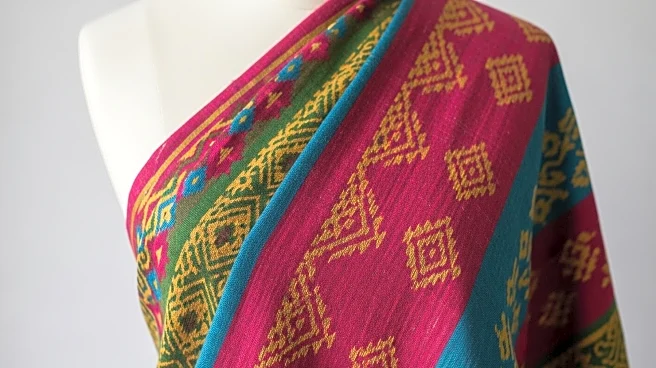What is the story about?
What's Happening?
The Business of Fashion has spotlighted emerging designers in its BoF 500 Class of 2025, showcasing individuals from diverse backgrounds who are shaping the future of the global fashion industry. These designers hail from cities beyond traditional fashion capitals, such as Warsaw, Mexico City, and Nairobi, and are integrating their unique cultural heritage into their work. They are addressing industry challenges like overproduction and carbon emissions, while also promoting sustainability and local craftsmanship. Designers such as Conner Ives and CFCL are pioneering new approaches to sustainability, while others like Magda Butrym and Patricio Campillo are emphasizing local craftsmanship and cultural recontextualization. Despite economic and geopolitical volatility, these designers are building globally resonant businesses and offering a vision for the industry's future.
Why It's Important?
The emergence of these designers signifies a shift in the fashion industry towards more sustainable practices and cultural inclusivity. By integrating local craftsmanship and sustainable methods, they are challenging the traditional norms of the industry, which has often been criticized for its environmental impact and lack of diversity. This movement could lead to a more inclusive and environmentally conscious fashion ecosystem, benefiting both local economies and global markets. As these designers gain recognition, they are likely to influence larger brands and inspire changes in production and design practices, potentially leading to a more sustainable and culturally diverse industry.
What's Next?
As these emerging designers continue to gain traction, they may face challenges such as financial burdens and the need for greater support from buyers and retailers. However, their growing visibility and success could encourage more investment in sustainable and culturally inclusive fashion. The industry may see a shift towards supporting independent brands and fostering a more inclusive global fashion ecosystem. Additionally, as these designers expand their reach, they may influence larger brands to adopt similar practices, potentially leading to widespread changes in the industry.
Beyond the Headlines
The rise of these designers highlights the ethical and cultural dimensions of fashion, emphasizing the importance of preserving cultural heritage and promoting sustainability. Their work challenges the industry's traditional focus on profit and mass production, advocating for a more thoughtful and responsible approach to fashion. This movement could lead to long-term shifts in consumer behavior, encouraging individuals to value quality and cultural significance over fast fashion. As these designers continue to innovate, they may inspire broader changes in the industry, promoting a more ethical and sustainable future.















